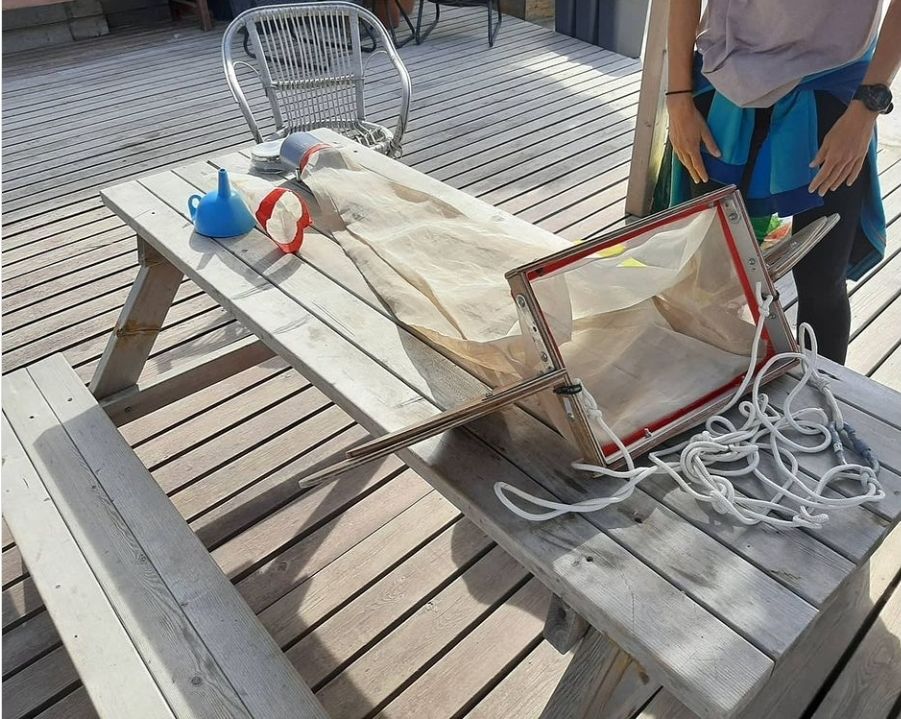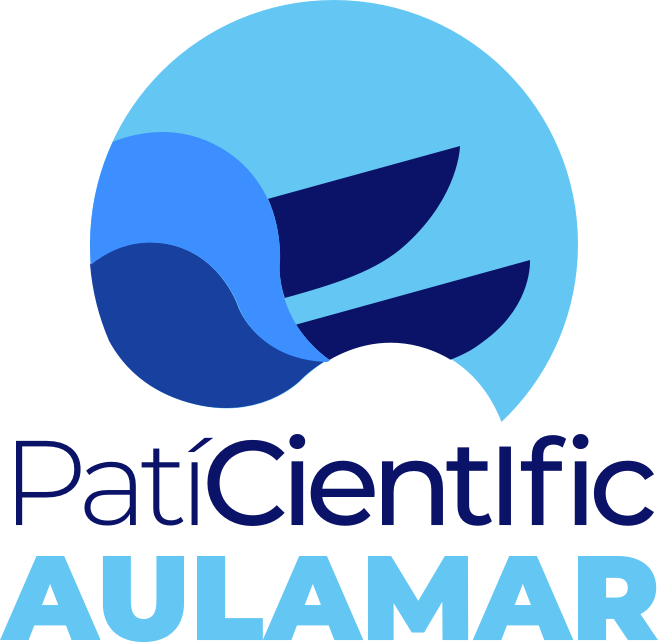The Patí Científic is equipped with two nets for plastic collection developed by the Barcelona School of Nautical Studies, Polytechnic University of Catalonia.
Net for collecting litter
Developed by the FNB-UPC, this net allows the collection of plastics and other floating objects, such as plastic bags, bottles, cans or facemasks. The net can be folded down to sink it when floating litter is detected. Once the object has been collected, the net is rolled up to avoid dragging it along during navigation, which would increase the boat’s resistance.
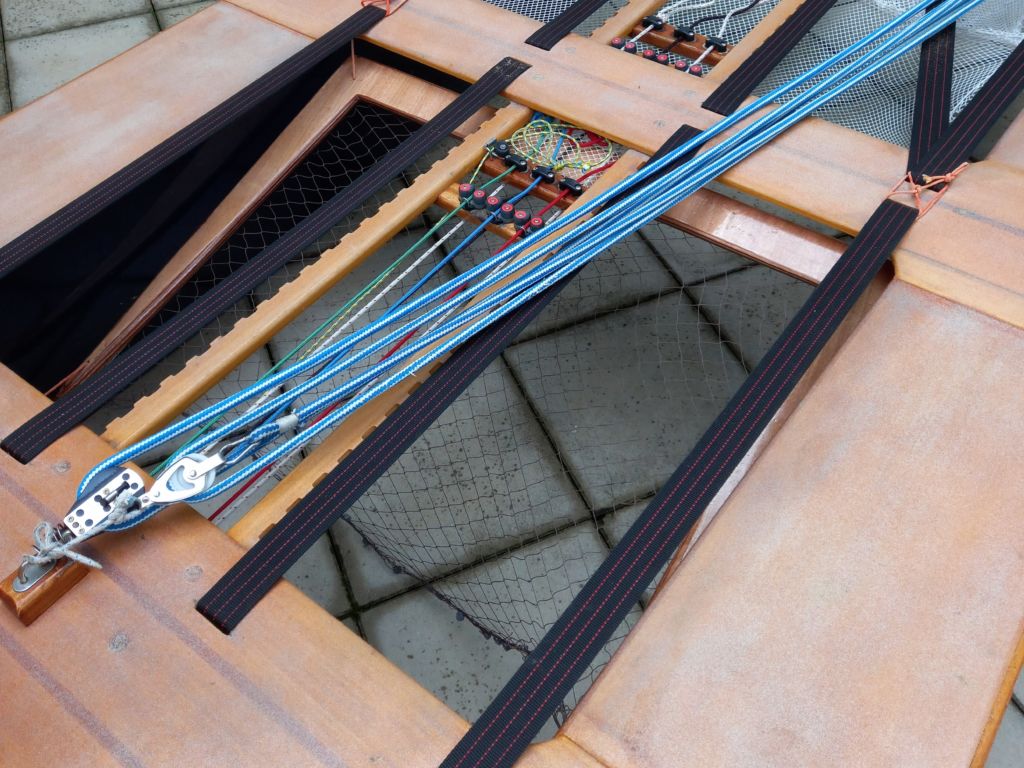
The net is located between the third and fourth bench and consists of a wooden frame on which the net mesh is sewn. On the underside, a line of weights facilitates immersion when the net is unfolded.
The net is raised and lowered with a small rope and a clamp on the Patí Científic’s sail piano. To keep it up, the rope is trimed. When it is lowered, the frame brings it down and the net sinks into the water.
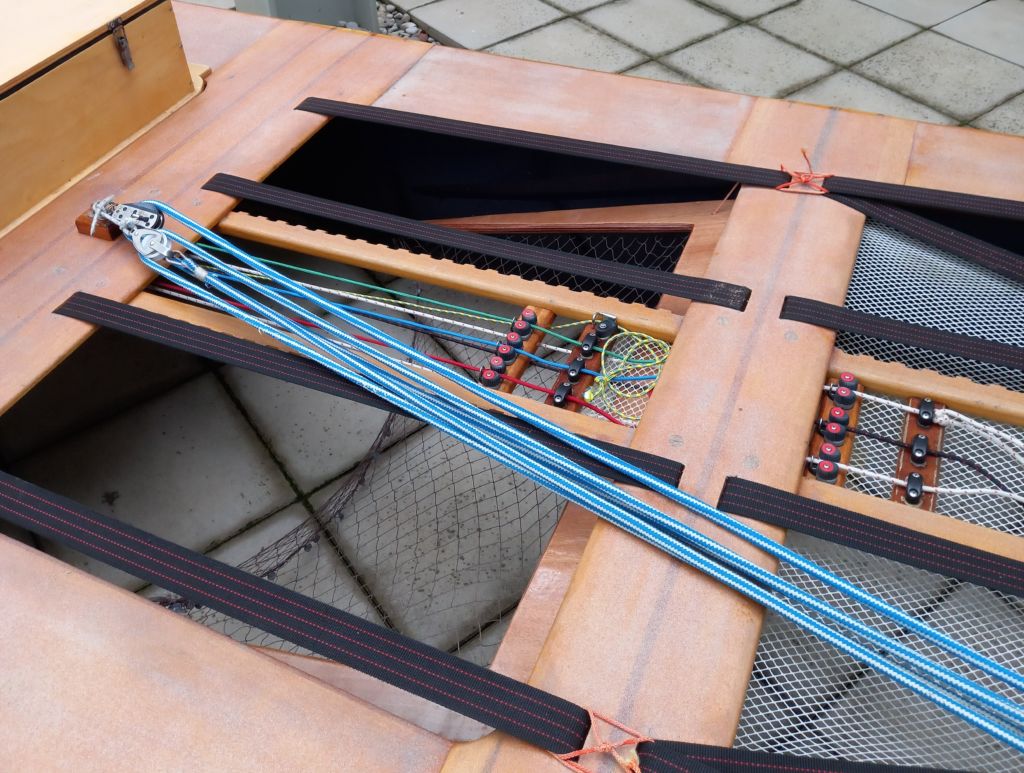
Net for collecting microplastics
The Patí Científic’s second net is used to collect microplastics. It was made according to the net design of the Surfing for Science project, (Faculty of Earth Sciences, University of Barcelona).
Surfing for Science is a citizen science project to assess microplastic pollution in coastal environments. Its aim is twofold: to determine microplastic concentrations and to increase society’s scientific knowledge about pollution. To this end, a net was designed that can be towed from a recreational boat, such as a kayak, a paddle-surf or a patí de vela.
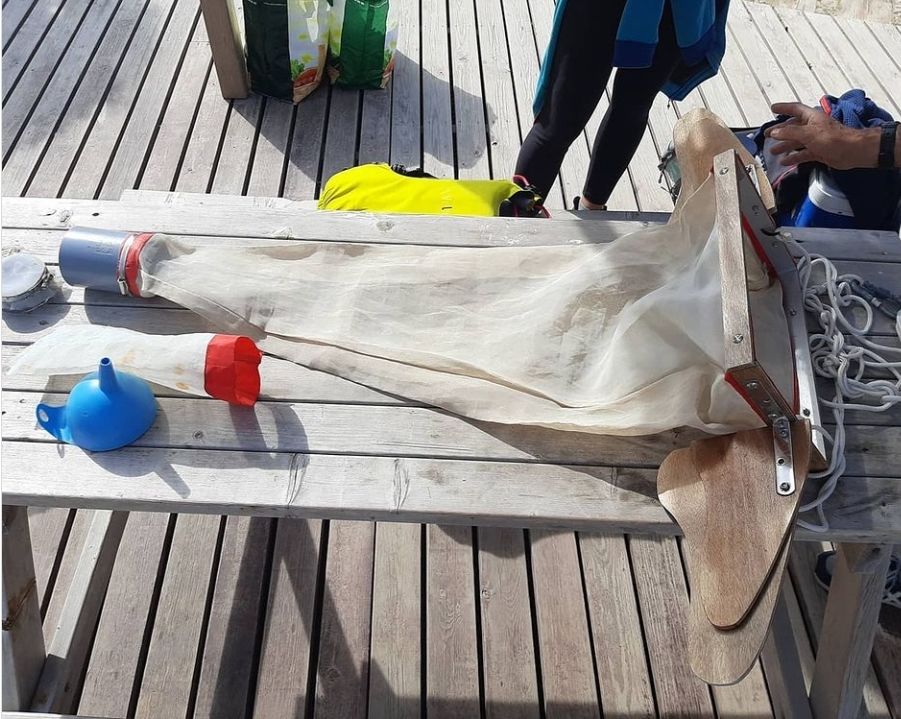
The structure is made of wood to keep the net on the surface during use. The frame enables to mesh to open while the two side fins ensure the correct alignment of the mesh mouth. At the end of the net is a small PVC tube that can be taken apart to remove the collected microplastics. Samples of these microplastics are analysed at the Faculty of Earth Sciences.
